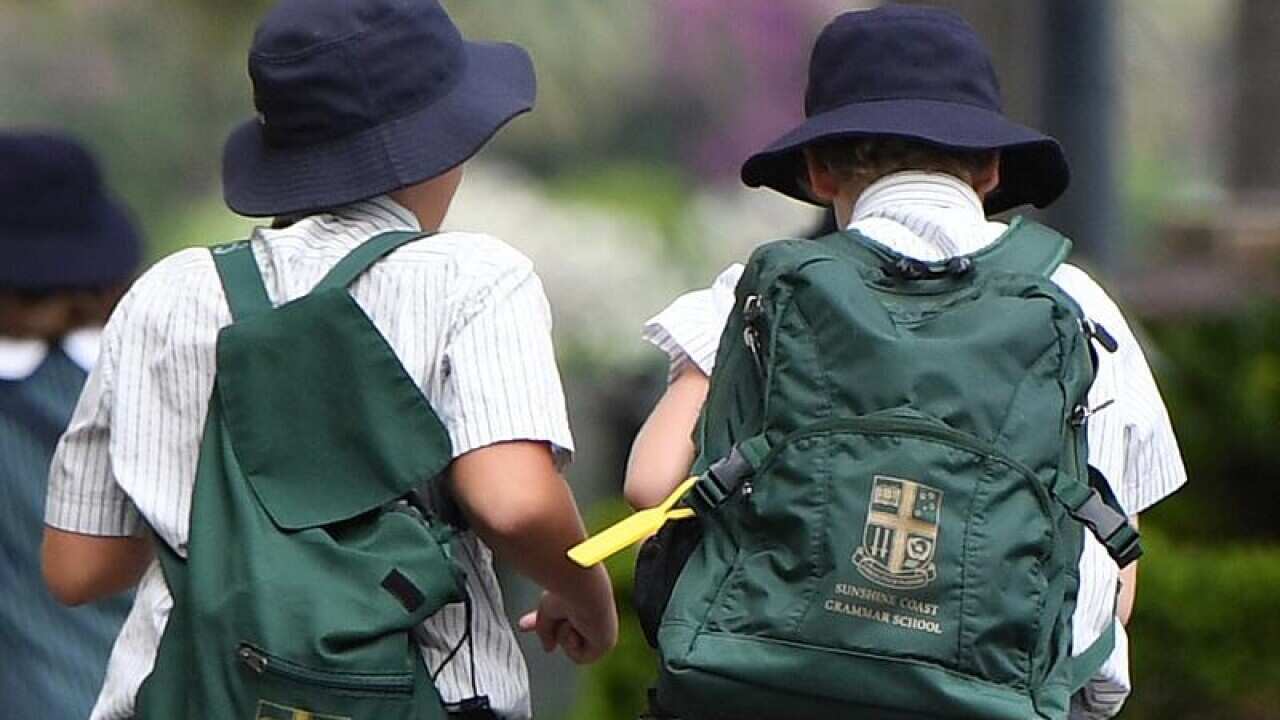Video above: Thousands of schools across the country are now running breakfast clubs to make sure their students have a healthy meal to start the school day. Full ep. on SBS On Demand.
For children, school is about more than just learning. This is even more the case for children living in disadvantage as many schools also provide vital food and a welcoming environment.
As the COVID-19 pandemic spreads across the world, many schools are closing and fewer children are attending. In term two, it seems, most Australian schools will be moving online.
We must consider how to replicate the physical, nurturing environments of schools for children living in poverty.
Breakfast clubs at school
As many as one in five children in Australia start the school day without eating breakfast. About 15 per cent arrive at school without lunch, or the money to buy it at the canteen.
It’s hard to know exactly who hasn’t eaten since these children look the same as any other student, and often don’t admit to being hungry to avoid feelings of shame. But hunger affects a child’s ability to learn and the impact can be lifelong.
Adequate nutrition is important for childhood learning and development. Research shows children who have access to breakfast at school have improved concentration, engagement, focus and academic outcomes compared to those who don’t.
Many schools across Australia have set up breakfast clubs, or have emergency food and lunches for children who might otherwise go hungry. These programs are not consistent across Australia though, with some funded by schools, and others through food agencies or state governments.
The Victorian government, for instance, spent A$13.7 million on breakfast clubs from 2016 to 2019. As a result, students in around 500 of Victoria’s most disadvantaged primary schools have had access to nutritious food.
The Victorian government committed a further $58 million to expand the program to 1,000 schools in the state from 2019 to 2023, providing free lunches and holiday food supplies to many schools that never had them before.
Other examples include the NSW government’s commitment of $8 million in June 2019 to expand their School Breakfast 4 Health program to an additional 500 schools in NSW and the ACT.
More than just food and nutrition
But breakfast clubs are about more than just nutrition. They provide opportunities for schools to engage with children and develop relationships that help students achieve a sense of connection.
They are about creating nurturing and caring spaces for children and making them feel safe and welcome, even before they start their school day.
As one student said about their school’s breakfast program:
The people there are really nice as well. The workers, and the kids. You can make friendships, you can talk to friends, chat, talk about things.
Schools are ideally placed to run breakfast clubs and other food programs when they are open, but how equipped are they to continue these programs when schools close, or parents – many of whom act as program volunteers – keep their children at home?
Expanding a program that provides food supply packs to homes should be feasible with the level of funding committed by some state governments, such as Victoria’s.
However, it is yet to be seen if a door-drop delivery of food packs conveys the same level of connection, nurturing and care for a child as we all adjust to new ways of social engagement.
The dedicated coordinators and volunteers of breakfast clubs would undoubtedly be keen to keep them running, but there are challenges:
- not all children will have access to technology at home, to an iPad or computer, to internet access, or to parents who are able to troubleshoot connection issues
- not every child will get out of bed to join a virtual breakfast at 8.30
- daily routines may no longer follow the structure of a normal school day
- not all children will be motivated by welcoming and nurturing environments online
- safe and welcoming environments may not be able to be replicated online, when children would now be located in the physical spaces that perpetuate their disadvantage.
One of the greatest challenges of COVID-19 is managing the gap between advantage and disadvantage. This example is about school breakfasts, but there are many other programs and services run by schools that seek to address the impact of disadvantage such as the Kids Hope and Future Foundations art program.
Achieving a sense of belonging at schools is acknowledged as a key protective factor for children’s health, education, social and emotional development and well-being.
How we maintain that, and keep children who are living with disadvantage engaged and connected throughout – and in the aftermath of – COVID-19, is vital to ensuring this period in a child’s learning and development does not further perpetuate their disadvantage.
Fiona MacDonald received funding from Foodbank Victoria from 2016-2019 to conduct research investigating the Victorian Government's School Breakfast Clubs Program.
Insight is Australia's leading forum for debate and powerful first-person stories offering a unique perspective on the way we live. Read more about Insight
Have a story or comment? Contact Us


